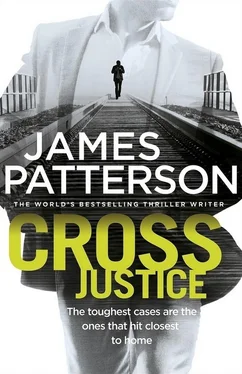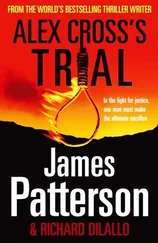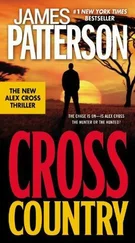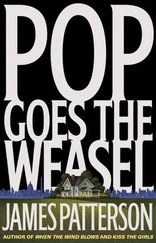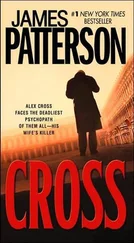Downstairs, he walked past oil paintings and sculptures into a library.
Finn Davis was standing there, looking unsure and uncomfortable.
“What is it?” Lizzie’s grandfather asked.
“We lost a company man,” Davis said. “His deliveries were never made.”
“Product?”
“All but three pounds intact.”
“Runner, then.”
“You want him tracked down?” Davis asked. “Dealt with?”
“Of course, but we have more pressing problems.”
“The Crosses?”
Lizzie’s grandfather nodded, said, “They survived the lace maker. She’ll try again. Meantime, I think you should take another stab at the big bad dragon.”
At eight thirty on Monday morning, Pinkie drove me and Bree to the courthouse, where Stefan’s trial was about to resume. Nana Mama was coming later with Aunt Hattie and Aunt Connie. Jannie was taking care of Ali.
I felt raw and irritated. Bree and my cousin looked wrung out. We’d been at this for the past thirty-six hours with very little sleep. And the secrets of Starksville were as murky and shape-shifting as they’d ever been.
We’d cut open one of the yellow-paper packages and found heavy-gauge plastic vacuum-sealed around what looked like loose blocks of shattered topaz-colored glass. The taste and smell had been unremarkable, so I’d called in a few favors from friends at the FBI crime lab at Quantico. They’d be receiving the samples and analyzing them later in the afternoon.
We still had no idea who owned the tanker. The trail camera had taken a good picture of that tanker’s right side, revealing a code of fifteen letters and numbers stenciled in black. When we reviewed all the earlier pictures of riders, the majority were sitting one freight car back from similar tankers with similar codes. Pinkie had worked at the codes, trying to track them all Sunday afternoon and evening, but had gotten nowhere.
Bree and I had taken up position in those trees above the tracks in Starksville around nine the night before and stayed long past eleven. No riders passed us.
In short, we’d had no luck linking Marvin Bell or Finn Davis or anyone else to the so-called Grandfather and the company. We had even begun to speculate that the riders and the drug ring had nothing to do with Starksville, that the operation was organized elsewhere and the shipments just passed through.
“I’m wondering if that rider disappearing triggered some kind of shutdown in the delivery system,” Pinkie said, taking a left into the town square.
“Could be,” I agreed.
“I think there’s a way to see if the riders are from Starksville,” Bree said.
“Okay...” I said.
“More trail cameras,” she said. “We set them at crossings to the north and south. If the riders are from elsewhere, they’ll already be aboard.”
Pinkie nodded as he pulled into the courthouse parking lot. “And if they’re not, we know this is their origination point.”
“And no one around here manufactures vanilla, right?” I asked.
“Not that I know of,” Pinkie said, parking.
When we reached the courthouse lobby, reporters, spectators, and witnesses streaming toward the trial venue were abuzz with news of Sheriff Nathan Bean’s fatal heart attack at a local breakfast café not an hour before. Sheriff Bean had had a history of heart problems, but it seemed a shock nonetheless.
In the courtroom I heard a reporter ask Starksville police chief Randy Sherman who the likely replacement was.
“Sheriff’s voted in,” Chief Sherman replied. “But I’d bet Guy Pedelini would be a strong candidate.”
I flashed on Bree’s description of Finn Davis standing on Pedelini’s back porch a few nights before, and for the first time, I felt as if there might really be a puppet master pulling the strings behind the scenes in Starksville. Grandfather? Even without concrete evidence against him, I could plainly see Marvin Bell in that role, hanging back in the shadows, looking legitimate, and using Finn Davis to do his bidding. We figured Bell and Davis were bribing Pedelini. How else did a detective afford a nice house on a lake like that?
A side door opened. A deputy led Stefan into the courtroom. I winced and heard my aunt Hattie cry out. My cousin’s left eye was bruised closed, and his jaw was wired shut.
Naomi rushed forward, looking furious as she helped him to his seat.
“Serves him right,” I heard a woman whisper, and I looked across the aisle at Ann Lawrence, who was talking to a sober Cece Turnbull. Rashawn’s mother didn’t reply, but Cece’s parents, who were sitting two rows behind, bobbed their heads in agreement.
District attorney Delilah Strong, however, seemed genuinely concerned about my cousin’s condition. So did her assistant Matthew Brady, who walked over to say something to Naomi.
She waved him off angrily. Patty Converse came in and sat in the row behind us. It was the first time we’d seen her in five days. She didn’t look at any of us, just stared blankly as the clerk and the court reporter took their positions.
The bailiff called out, “All rise. This court is now in session, Judge Erasmus P. Varney presiding.”
Judge Varney was weaker and sallower than the last time I’d seen him, when he’d been flushed and contorting against the pain of kidney stones as EMTs rolled him from the courtroom. But the judge still had a commanding presence as he took the bench, picked up his gavel, and called his court to order.
“I apologize for my illness,” he said. “Ukrainian blood on my mother’s side. And I’d like to say how tragic it is that Sheriff Bean passed so suddenly this morning. He was a man of great integrity and honor.”
Varney’s eyes stayed locked ahead during his introductory remarks, as if he were not addressing the courtroom as a whole but someone in particular sitting in the gallery. Who, I couldn’t tell. But maybe it was just my imagination.
Varney picked up a piece of paper on the bench, read it, said, “Ms. Cross, the court has been notified that your cross-examination witness Sharon Lawrence will be unavailable today, as she has taken ill and is in the hospital. Is that correct?”
Ann Lawrence, her mother, stood and said, “Yes, Your Honor. She’s on IVs with a hundred and three fever.”
“Then I expect you’ll want to be at her side,” Varney said.
“Yes, Judge, thank you,” she said.
The mother of the girl who’d accused my cousin of rape and tried to frame Jannie glanced hurriedly at us and then left.
“She’s hiding something,” Bree whispered in my ear.
“Big-time,” I said, wanting to get up and follow her, ask her more than a few pointed questions.
But then Judge Varney said, “Counselor, when Ms. Lawrence is recovered, you’ll be given the opportunity to continue your cross. In the meantime, I’d like to move forward. Unless you have questions or concerns?”
“I have concerns, Your Honor,” Naomi said. “With all due respect to the memory of Sheriff Bean, there has been a fundamental breakdown in my client’s protection. Sheriff’s deputies allowed inmates to beat and kick my client until—”
“Objection!” the prosecutor cried. “There’s no evidence that any deputy ‘allowed’ the altercation.”
“Judge, Mr. Tate appears before you with multiple contusions, swelling, a broken jaw, and a probable concussion,” Naomi shot back. “At the very least, you can allow a competent neurologist to examine him before we continue with trial.”
Strong said, “Mr. Tate was treated by jail doctors, who tell me that he shows no sign of concussion.”
“Mr. Tate?” Judge Varney said. “Do you understand what’s going on around you? Where you are? What you’re doing here?”
Читать дальше
